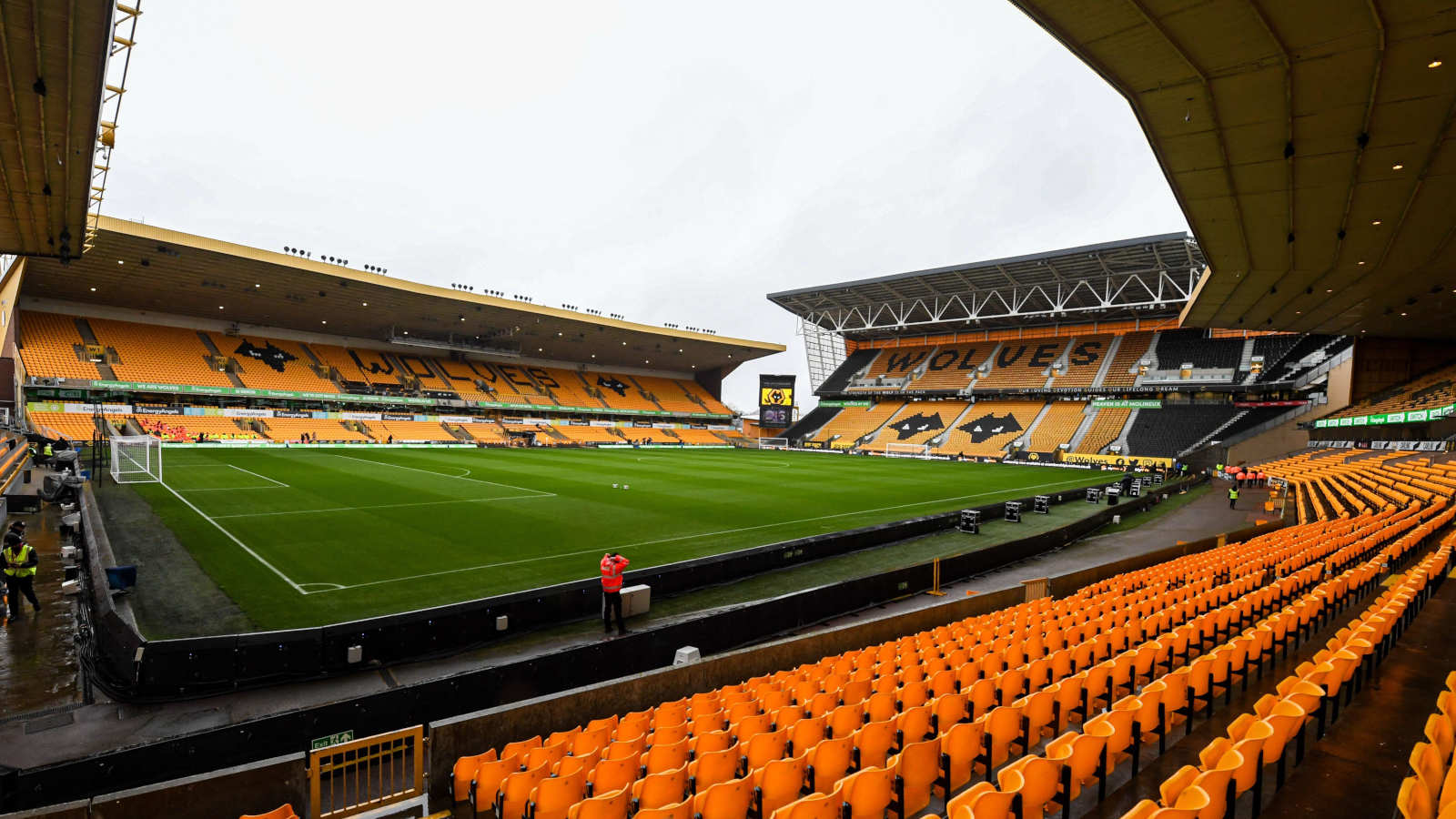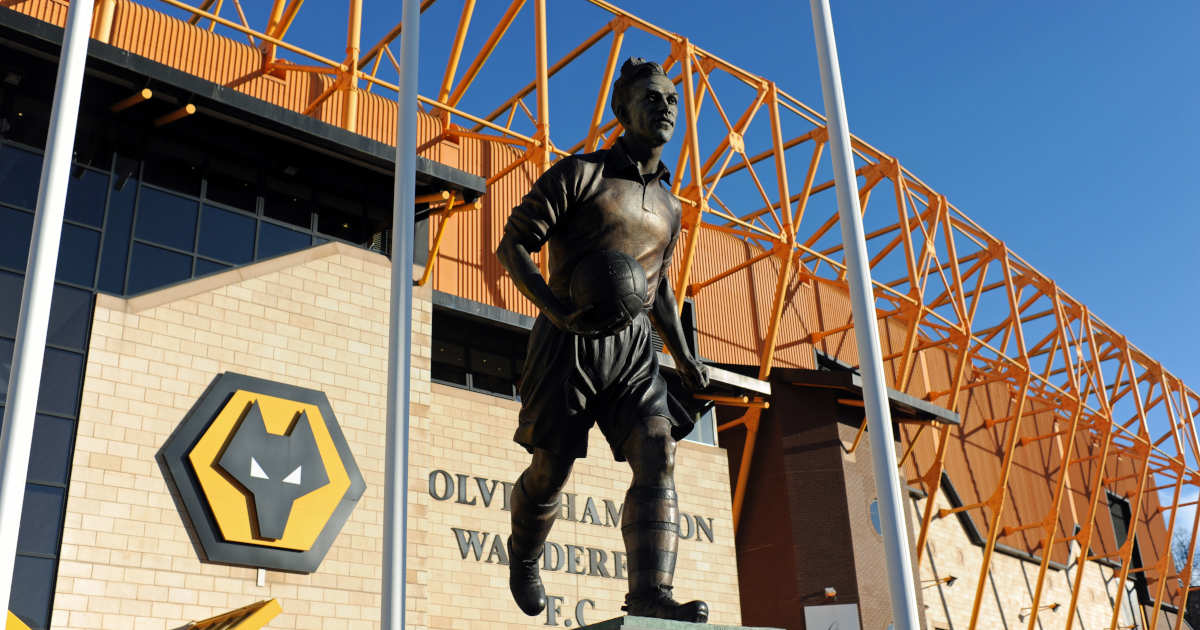Julen Lopetegui is asking uncomfortable questions of the owners at Wolves

A storm could be brewing at Wolves, with manager Julen Lopetegui asking awkward questions of the owners after some pretty wild spending over the last year.
This has been a season of inconsistency for Wolves, and of a strangeness masked by the fact that they will finish it in the relative hinterlands, somewhere between 12th and 15th in the Premier League table. They’ve failed to win more than two or lose more than three successive games, and they only lost three in a row once, at the start of the run that ended Bruno Lage’s spell in charge.
There have been strange anomalies in their results this season, with occasional defensive brain-melts such as losing 6-0 at Brighton, and conceding four at home against both Leeds United and Leicester City. Indeed, should Everton end this season’s three-way relegation dogfight by staying up, then two of the relegated teams will have done the double over Wolves this season. Even in the FA Cup, they did the hard work of earning a home replay against Liverpool but then promptly lost.
It wasn’t all bad news, of course. There were home wins against Liverpool, Chelsea, Spurs and Aston Villa. Such results indicate that Molineux has the capacity to become a fortress, in the same way that The City Ground has been for Nottingham Forest this season. When Jolen Lopetegui was appointed in November, making his actual competitive managerial debut five days before Christmas, the brief was clear: a home defeat by Arsenal had put Wolves bottom of the Premier League, with just two wins from their first 16 games. Just keep us in the Premier League and we’ll worry about the details later.
In one sense, mission accomplished. They stuttered a fair bit on the way, but four wins in six games in April was enough to get them to safety with just enough to play. Wolves head into their final game of the season at Arsenal jockeying for their final league position and, of course, the extra prize money that comes with it. Each league position is worth £2.2m, so the difference between finishing 12th and 15th would be £6.6m, not an insubstantial amount of money, especially when you consider that their inconsistency this season hasn’t been confined to the pitch. It’s extended to their finances, too.
The club have have certainly been busy in the transfer market. Last summer, they spent more than £100m. This amount was offset a little by the sales of Morgan Gibbs-White to Nottingham Forest and Leander Dendoncker to Aston Villa but more was spent in January; quite a lot more if we factor in the Matheus Cunha situation, which is a loan until the end of the season before becoming a permanent transfer, at which point a £43m price tag becomes attached.
The headline figure of ‘Wolves have spent almost £200m on transfers this season’ is essentially correct, and none of these numbers even include wages. Their financial losses for the 2021/22 season were £46.1m. The year before they reported a profit of £18.4m, but with the rules limiting them to rolling three-year losses of £105m it’s not difficult to see how they could be sailing close to the wind on FFP.
The financial situation is complex, but it seems likely that the club needs to tighten its belt over the course of this summer, a matter that is further complicated by the fact that they have several players either falling out of contract or otherwise likely to leave the club this summer.
Jonny, Joao Moutinho, Adama Traore, Raul Jimenez and Ruben Neves could all be making their last appearances for Wolves – or not even making appearances, in some cases – in their final game of the season at Arsenal, and the loss of such a collection of names is a clear indicator of changing times ahead.
And this conflation of issues leaves the club heading in a tricky direction. Wolves have work they need to carry out on their squad this summer. There will be spaces, with big personalities – which still counts for a lot in the changing room and on the training ground, even amongst those who may not be playing – moved on. But they have to achieve this while trying to break even. It starts to look as though the owners of the club may have…messed up somewhat, especially as Julen Lopetegui is now very publicly expressing his ‘surprise’ at these potential FFP issues.
Now, there is a conversation to be had here about who promised what to whom, and how Wolves have ended up in a position in which the future of a head coach that they had spent a considerable amount of time and resources pursuing might be considered ‘in doubt’ just six months after he arrived. We presume that detailed conversations were held between Lopetegui and the club over the expectations of both parties, and that this would include transfer policy and all associated financial matters. If FFP wasn’t an issue in November, what’s changed since then?
There’s an obvious dread scenario for Wolves supporters here: Lopetegui falls out with the board and quits; the expected exodus of players comes. But even though lifting their wages off the budget is a blessed release, these departures leave a hole in the changing room and on the pitch that the club can still only afford to fill on the cheap. Ill-prepared for having to appoint a new manager, the summer’s plans are thrown into disarray. And the bad news for the club that this is all playing out very publicly at the exact moment when they’re expecting people to renew their season tickets during an ongoing cost-of-living crisis.
And even if this scenario doesn’t play out, this is not a strong way to end a season if Wolves do want to attract the sort of players that will get them back into the top half of the Premier League table. If the club made spending commitments to Lopetegui, they’re going to either need to come good on them or start preparing for the possibility of him leaving. At the very least, it is to be hoped that they have learned a lesson about the risks of going hog-wild in the transfer market.
It’s difficult to avoid the conclusion that the owners have got a little out of their depth. Julen Lopetegui is a top-class coach, highly experienced and a different order altogether to anyone else the club has had in recent years. By going public over this, he’s shining a light on those above him which they may soon start to find uncomfortable, but for which supporters of the club should probably be grateful.
They’ll be hoping that this potential impasse doesn’t become impassable, because what the club would do next in the event of his departure is just about anybody’s guess.
